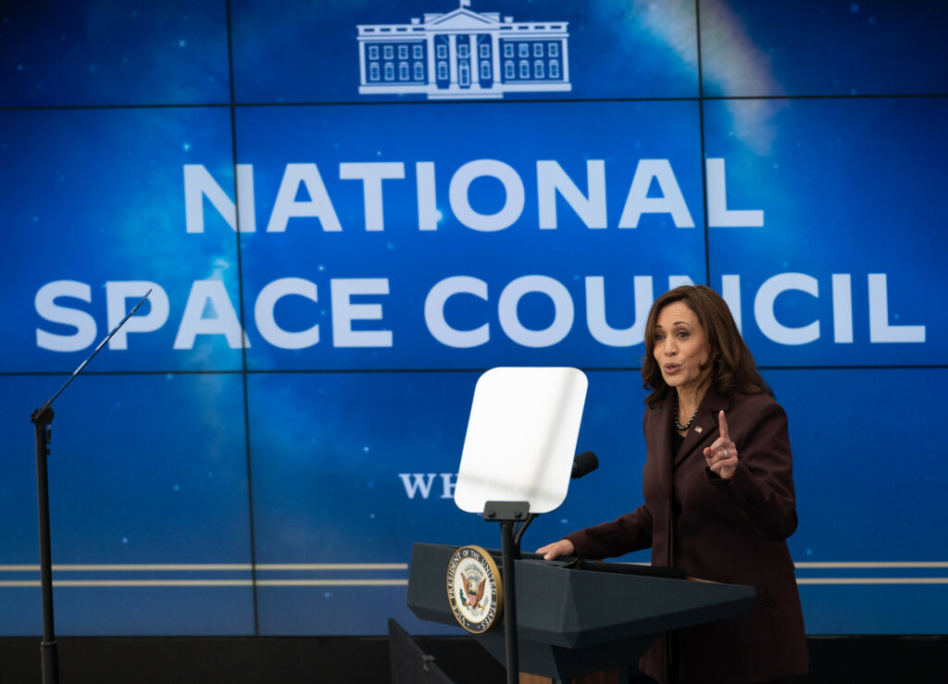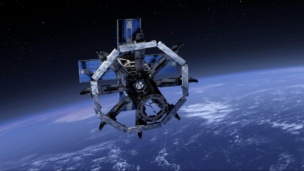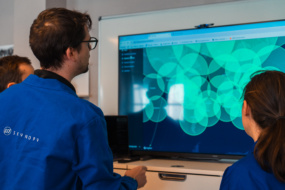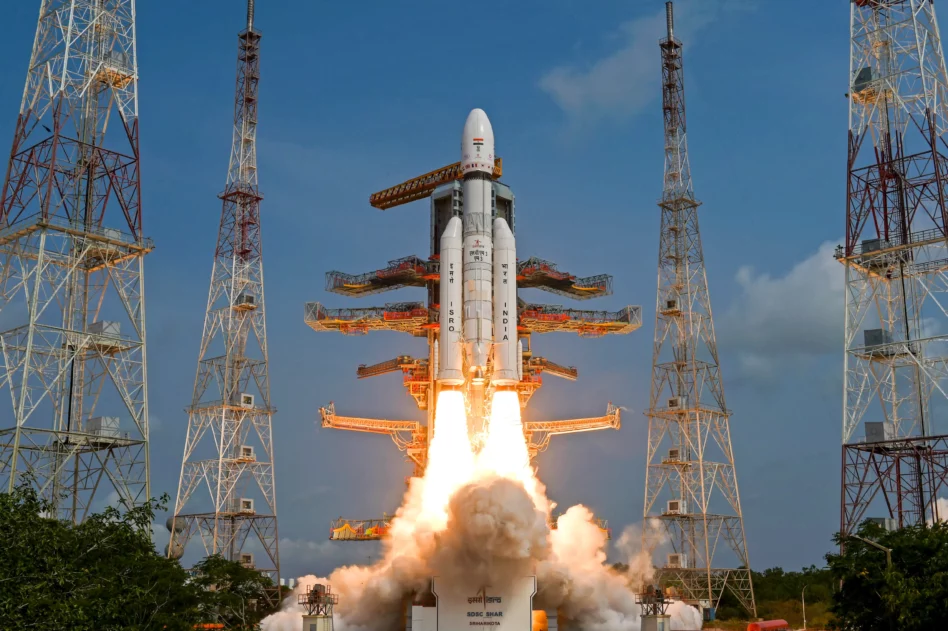The US will send an international astronaut to the lunar surface by the end of the decade, VP Kamala Harris announced at the National Space Council meeting on Wednesday afternoon.
The third meeting of the council under the Biden administration focused on international partnerships, including using space to bolster American leadership worldwide and building a global coalition to return to the Moon.
International boots: Harris kicked off the meeting by highlighting the role that international space agencies will play in the Artemis program to return to the Moon, including contributions from Europe, Japan, and Canada on the Gateway lunar space station.
“In recognition of the essential role that our allies and partners play in the Artemis program, I’m proud then to announce that alongside American astronauts we intend to land an international astronaut on the surface of the Moon by the end of the decade,” Harris said. “This announcement and this meeting of the National Space Council is further demonstration of our belief of the critical importance of international partnership.”
Her comments reflected prior commitments from space officials that international astronauts would be part of the Artemis program, as evidenced by Canadian Jeremy Hansen flying on the Artemis II mission around the Moon.
The White House did not announce which Artemis flight to the lunar surface would include an international participant. Artemis III, which would be the first crewed mission to the Moon’s surface in more than 50 years, is slated to launch in December 2025, though it is expected to be delayed.
The Accords: Harris announced a commitment to growing the Artemis Accords from the 33 nations who have signed on so far. The guidelines are designed to provide a venue for nations to discuss the responsible use of space (and are a prereq for countries that may eventually want to participate in the Artemis program), but so far, haven’t produced any concrete outcomes. Harris directed the government to work on “tangible next steps” on implementing the accords, according to a White House fact sheet.
Novel space next steps: The White House released an executive order on novel space activities to complement the legislative proposal it announced last month.
The framework takes several steps, including:
- Establishing a Private Sector Space Activities Interagency Steering Group led by the secretaries of the Commerce and Transportation Departments.
- Urging the Commerce and Transportation Departments to “minimize burdens on industry” as much as possible.
It’s not a substitute for passing legislation, however. Only Congress can make the changes proposed by the White House last month, including giving the Transportation Department oversight of all crewed missions in orbit while leaving the authorization of other novel space tech, such as in-space servicing, to the Commerce Department.
This story was updated at 2:35pm to include Harris’ remarks.





